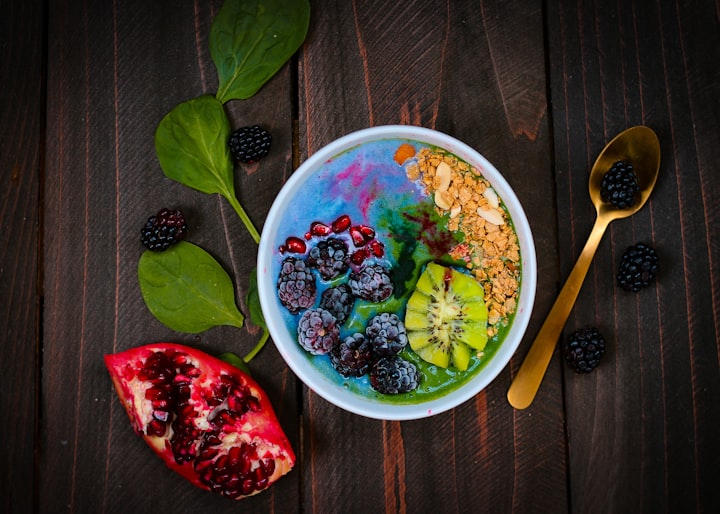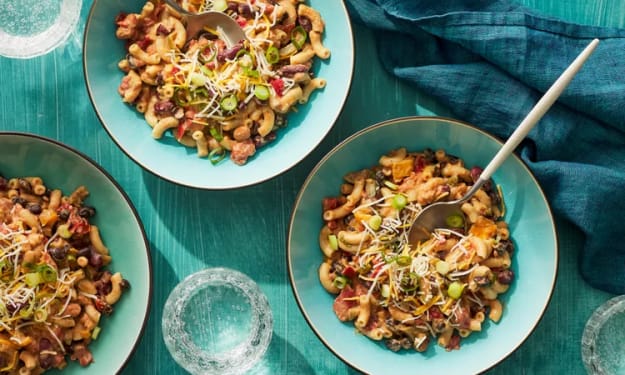What Is the Best Meal Plan to Lose Fat Faster
The best plan to lose fat faster

Are you struggling to shed those extra pounds and wondering what meal plan can help you lose fat faster? When it comes to fat loss, a well-structured meal plan plays a vital role in achieving your goals. In this article, we will explore the best meal plan to lose fat faster and provide you with valuable insights to support your weight loss journey.
1. Introduction
Losing fat can be challenging, but with the right approach, it becomes more manageable and sustainable. A meal plan tailored to your individual needs can be a game-changer. Let's dive deeper into the science of fat loss and the importance of a meal plan in achieving your desired results.
2. Understanding Fat Loss
2.1 The Science Behind It
Fat loss occurs when you create a caloric deficit, meaning you consume fewer calories than your body needs. This deficit forces your body to tap into its fat stores for energy, leading to weight loss over time. However, the process is not as simple as calories in versus calories out. Various factors influence fat loss, which we will discuss next.
2.2 Factors Affecting Fat Loss
Factors such as genetics, metabolism, hormonal balance, and lifestyle choices can impact your fat loss journey. While some factors are beyond your control, others can be modified through lifestyle changes, including following a well-designed meal plan.
3. Importance of a Meal Plan
3.1 Customized Meal Plans
A personalized meal plan takes into account your specific dietary requirements, preferences, and goals. It provides structure, ensuring you make healthier choices and stay on track with your fat loss journey. Customization is key because everyone's nutritional needs and preferences differ.
3.2 Benefits of Following a Meal Plan
Following a meal plan offers numerous benefits. It helps you maintain a caloric deficit, ensures balanced macronutrient intake, and promotes the consumption of nutrient-dense foods. Additionally, a meal plan eliminates guesswork and helps you stay consistent, increasing the likelihood of achieving your fat loss goals.
4. Key Components of an Effective Meal Plan
To optimize fat loss, an effective meal plan should include the following components:
4.1 Caloric Deficit
Creating a moderate caloric deficit is essential for fat loss. It involves consuming slightly fewer calories than your body requires to maintain its current weight. However, it's important not to excessively restrict calories, as this can negatively impact your metabolism and overall health.
4.2 Macronutrient Distribution
Balancing your macronutrient intake is crucial. A meal plan should include adequate protein to support muscle retention and repair, healthy fats for satiety and hormone regulation, and complex carbohydrates for sustained energy levels.
4.3 Balanced and Nutrient-Dense Foods
Choosing whole, unprocessed foods is key to a successful meal plan. These foods are rich in essential nutrients, fiber, and antioxidants, supporting overall health and optimizing fat loss. Incorporate plenty of fruits, vegetables, lean proteins, whole grains, and healthy fats into your meals.
4.4 Meal Frequency and Timing
While the timing of meals does not significantly impact fat loss, it's essential to find a meal frequency that works for you. Some individuals prefer three square meals a day, while others find success with smaller, more frequent meals. Listen to your body and choose a pattern that helps you maintain consistency.
5. Popular Meal Plans for Fat Loss
There are various meal plans that can aid fat loss. Let's explore some of the most popular options:
5.1 Ketogenic Diet
The ketogenic diet is a low-carbohydrate, high-fat eating plan that forces the body into a state of ketosis. This metabolic state utilizes fat as the primary fuel source, leading to accelerated fat loss. However, it requires strict adherence and may not be suitable for everyone.
5.2 Intermittent Fasting
Intermittent fasting involves cycling between periods of fasting and eating. This eating pattern can promote fat loss by reducing overall calorie intake and improving insulin sensitivity. Popular methods include the 16/8 method and alternate-day fasting.
5.3 Mediterranean Diet
The Mediterranean diet emphasizes whole, plant-based foods, lean proteins, healthy fats, and moderate wine consumption. It has been associated with numerous health benefits, including weight loss and reduced risk of chronic diseases.
5.4 Plant-Based Diet
A plant-based diet focuses on whole, plant foods while minimizing or eliminating animal products. This approach can be effective for fat loss due to its emphasis on fiber-rich foods, which promote satiety and aid in weight management.
6. Creating a Personalized Meal Plan
When aiming for fat loss, consulting a registered dietitian can provide valuable guidance. They can help create a customized meal plan based on your specific needs, taking into account factors like dietary restrictions, lifestyle, and preferences. Setting realistic goals and tracking your progress along the way are also important for long-term success.
7. Tips for Successful Fat Loss
Achieving fat loss requires a holistic approach. In addition to following a meal plan, consider incorporating the following tips:
7.1 Regular Exercise
Engaging in regular physical activity helps burn calories, build muscle, and support overall well-being. Combining a well-designed exercise routine with a proper meal plan can maximize fat loss results.
7.2 Adequate Sleep
Getting sufficient sleep is crucial for fat loss and overall health. Lack of sleep can disrupt hormones related to hunger and satiety, leading to increased cravings and difficulty managing weight.
3. Stres7s Management
High levels of stress can hinder fat loss progress. Implement stress-reduction techniques such as mindfulness, meditation, and regular self-care practices to support your weight loss journey.
8. Conclusion
In conclusion, the best meal plan to lose fat faster is one that is customized to your individual needs and preferences. It should include a caloric deficit, balanced macronutrients, nutrient-dense foods, and a meal frequency that suits you. Popular meal plans like the ketogenic diet, intermittent fasting, Mediterranean diet, and plant-based diet can also aid in fat loss. Remember to consult a registered dietitian for personalized guidance and follow healthy lifestyle practices for long-term success.
9. FAQs
1. Will following a meal plan guarantee fat loss?
While a well-designed meal plan can significantly support fat loss, it's important to consider other factors such as exercise, sleep, and stress management. Consistency and lifestyle modifications are key to achieving sustainable fat loss.
2. Can I create my own meal plan for fat loss?
Creating your own meal plan is possible, but it's advisable to consult a registered dietitian for professional guidance. They can help ensure your meal plan meets your nutritional needs and supports your fat loss goals.
3. How long will it take to see results with a meal plan for fat loss?
The rate of fat loss varies from person to person. Sustainable and healthy fat loss generally occurs at a rate of 1-2 pounds per week. However, individual factors such as metabolism and starting weight can influence the timeline.
4. Are cheat meals allowed in a fat loss meal plan?
In moderation, occasional cheat meals can be incorporated into a fat loss meal plan. They can help satisfy cravings and provide a mental break from strict dietary restrictions. However, it's important to maintain balance and not let cheat meals derail your progress.
5. Can I continue the meal plan even after reaching my fat loss goals?
Absolutely! The principles of a healthy meal plan, such as consuming nutrient-dense foods and maintaining a balanced diet, are beneficial for long-term health and weight maintenance. Adjust the plan according to your new goals and lifestyle to sustain your achievements.
About the Creator
Shahid Ahmad Khan
I am an article writer who creates captivating and informative content. With strong research skills and effective communication, I deliver engaging articles that enlighten, entertain, and inspire readers.






Comments
There are no comments for this story
Be the first to respond and start the conversation.